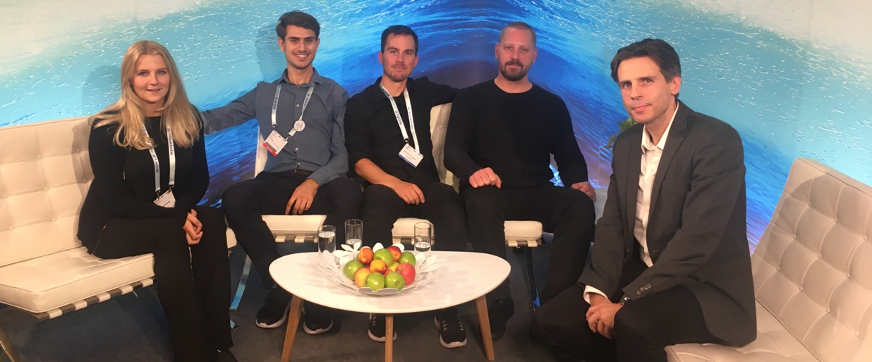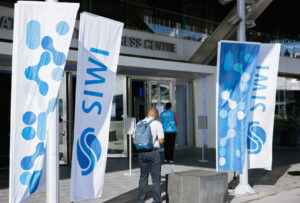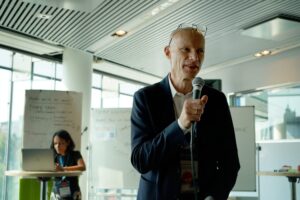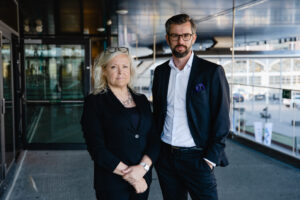BLOG: #SIWISofa: Live discussions from World Water Week
It is essential to raise the issue of water and its importance in climate change dialogues. SIWI is working with partners to establish viable routes through which to enable the transition of water expertise into decision making processes. It is our goal that this should lead up to and beyond COP21 in Paris 2015, where we anticipate a new deal on climate will include intelligent water considerations. SIWI and partners have identified the Cancún Adaptation Framework (CAF) as an important entry point for integrating water into climate policy and implementation.
Water – a key element for responding to climate change
Possible entry points to UNFCCC programmes and mechanisms
- Water should be one of the cross-cutting issues during the next phase of the Nairobi work programme Adaptation to climate change has been part of the UNFCCC mandate from the beginning, but it was only in 2005 at the 10th Conference of the Parties (COP 10) in Buenos Aires, Argentina, that the UNFCCC decided to systematically address knowledge and information on vulnerability and climate change adaptation. This was the origin of the programme that was later to be known as the Nairobi Work Programme (NWP). Work areas of the NWP on impacts, vulnerability and adaptation to climate change will be explored at COP19, with a view to making development recommendations. This consideration offers a timely opportunity to re-examine the overall objective and structure of the programme and find ways of further improvements whilst integrating water resources for example as a cross-cutting issue area.
- Secure the integration of water knowledge in the work of the Adaptation Committee With a mandate of providing recommendations to COP on ways to rationalize and strengthen coherence among adaptation bodies, programmes and activities under UNFCCC, the Adaptation Committee is in a key position to ensure that water perspectives are made part of all adaptation decisions and measures under UNFCCC.
- Raise the issue of water in the mitigation agenda – using REDD+ as an example The climate mitigation discussion has until recently neglected water resources as an important element for success, but there is an increasing recognition of the need to combine water, food, energy, and climate securities in order for them all to be effective (Ebinger & Vergara 2011). SIWI with partners have increasingly highlighted the importance of addressing water resources in mitigation, for example the “REDD” programme; Reducing Emission from Deforestation and Forest Degradation and promoting synergies between climate adaptation and mitigation. The carbon storage potential of forests is influenced by the availability of water. Without sustaining the long-term availability of water resources, the efforts of any REDD+ programme to permanently reduce emissions, increase removals and conserve carbon stocks will fall short. Conversely, REDD+ can contribute to the protection of ecosystem services such as water regulation.
- Integrate water management knowledge in the Programme on Loss and Damage The UNFCCC Loss and Damage Programme was established to strengthen international cooperation and expertise in order to understand and reduce loss and damage associated with the adverse effects of climate change, including impacts related to extreme weather events and slow onset events. Water knowledge, experiences and good examples need to be fed into the current discussions on institutional arrangements to address loss and damage associated with the impacts of climate change in developing countries. •Integrate water resource management into the development of the National Adaptation Plans Water resources management should be a central part of the National Adaptation Plans (NAPs). The technical guidelines for the NAP process were finalised in 2012 and discussions will be held on experience with the application of the guidelines, including through sectors. In these discussions, good examples and relevant experiences of countries with improving water management as part of the adaptation plan need to be included to integrate water and water management as cross-cutting issues into the guidelines and national and sub-national planning through the NAP process.
- Involve partner organisations in UNFCCC adaptation activities Extensive knowledge on water management and climate change adaptation has been accumulated in various organisations, forums and platforms. Such knowledge and experience from the ground can and should be used under UNFCCC. Many of the above-mentioned entry points can be accessed through stronger partnerships with various organisations working on water and by linking more closely climate and water experts and communities.
These suggestions were prepared by the Stockholm International Water Institute, in cooperation with Conservation International, the Netherlands and the secretariat of the UNECE Convention on the Protection and Use of Transboundary Watercourses and International Lakes (UNECE Water Convention). It was prepared, among other reasons, as a follow-up and upon request by the sixth meeting of the UNECE Task Force on Water and Climate (Geneva, 27 June 2013) but was not endorsed by the Task Force. The suggestions are meant to serve as informal input with arguments and concrete suggestions for increasing the role of water in the negotiations and various bodies under the United Nations Framework Convention on Climate Change (UNFCCC). It addresses delegates working on water and/or climate change, especially those involved in the UNFCCC negotiations and members of the UNECE Task Force on Water and Climate.
SIWIs activities at COP 19
- Side event: Thurs 21 November, 18.30-20.00 “From negotiations to action on the ground – Promoting coherence on adaptation”
- Press conference: Karin Lexén, World Water Week, International Processes and Prizes Director , SIWI will be taking part in a live streamed press conference on Thursday 21 November, 10:00 – 10:30 CET
- Social Media: You can follow live conference updates from the SIWI’s Programme Manager Anna Forslund at twitter.com/forslund_anna
- Blog: Anna Forslund, Karin Lexén and Sofia Widforss will be blogging from the conference. You can follow their posts here








